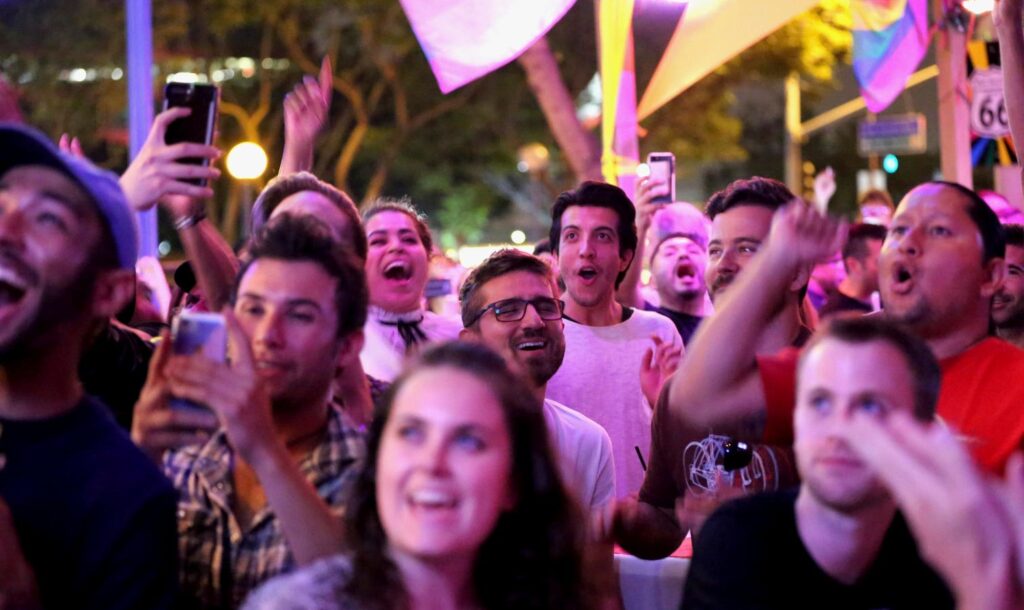In this June 23, 2017 photo, fans react to the season nine finale of “RuPaul’s Drag Race” during a … [+]
APOriginally airing on Logo TV, RuPaul’s Drag Race has moved from platform to platform. Expanding its reach to platforms like VH1, Paramount +, and now MTV, it’s no surprise that the show’s audience and demand for more of the competition has grown as RuPaul, dubbed the queen of Drag, expands his empire. In recent years, Drag Race has extended and transformed into an undeniable global phenomenon, expanding its reach beyond its American market and roots into international franchises like Drag Race UK, Drag Race Down Under, Drag Race France, and many more.
With its first season airing in 2009, Drag Race initially appealed to a niche audience of LGBT+ Americans and their allies. Drag Race has always been an unapologetic representation of previously underrepresented queerness and self-expression. Now, with the expansion of Drag Race’s content to WOW Presents Plus, the show has never been more accessible to international fans, making it a point that no hardcore fan misses out on any queen’s storyline.
Each international franchise—whether Drag Race España, Drag Race Philippines, or Drag Race Mexico—brings its unique spin and interpretation of Drag to the mainstage, but the central idea that the original show presented remains a powerful constant: Drag is a love letter to and celebration of art, self-expression,
In countries where LGBT+ rights have not been codified or are still under attack, Drag Race can be seen as more than just a show for entertainment purposes but as a beacon of hope for the many marginalized and disenfranchised fans who use it to connect with people all over the world. For many, Drag Race offers community, and that extends far beyond the idea of fandom.
Drag Race’s Global All-Stars and VS the World seasons further emphasize the importance of the connection between fans and how Drag Race has evolved into a franchise that has unified people across cultures. With both seasons behaving similarly to the American All Stars seasons, fan favorites from various franchises to compete against each other, showcasing different forms of drag and cultural expressions to viewers who may not be familiar with other seasons. As a result, names like Marina Diamond, Pangina Heels, Kitty Scott-Claus, and Kween Kong have become household names in the American market, further connecting fans globally.
SYDNEY, AUSTRALIA – JUNE 19: Kween Kong attends the TV WEEK Logie Awards Nominations Event on June … [+]
Getty Images for TV WeekWhat started as a humble competition with a Vaseline filter has become a light in a world that sometimes feels heavy and hopeless. Some people have competed in Drag Race and were introduced to Drag by the franchise, which shows its impact and relevance. RuPaul may have started Drag Race as a fun project, but it’s evolved to heights no one could have imagined nearly 15 years ago.
“I don’t think the show could ever go mainstream because drag is the antithesis of the matrix,” the Supermodel singer said. “Drag is the opposite. Drag says, ‘Identity is a joke.’” And while he may be right in his statement that drag, or at least some of its core principles, will never indeed be mainstream, it has at least reached a point where it’s become an entertainment staple in the international cultural zeitgeist.
Read the full article here


